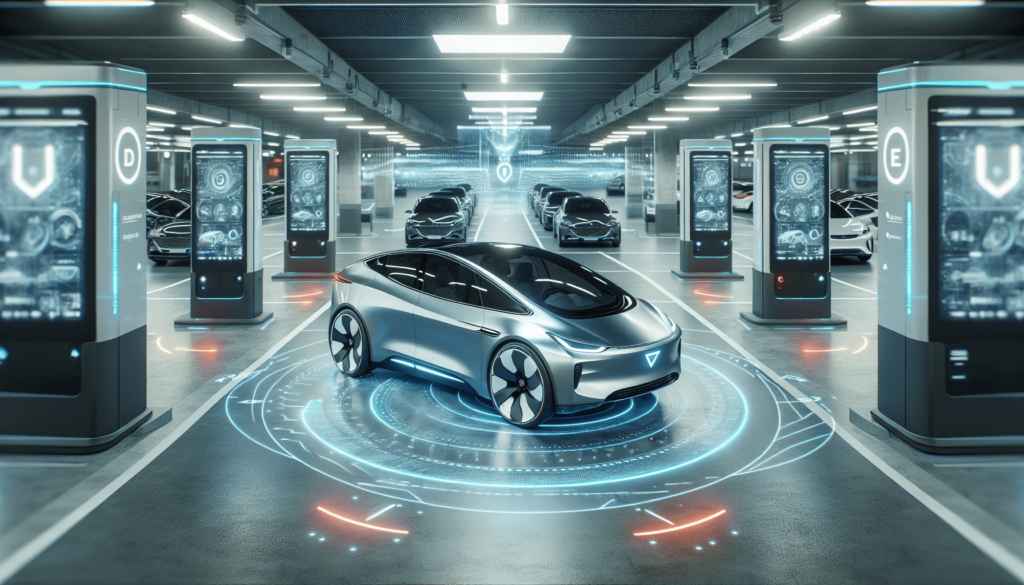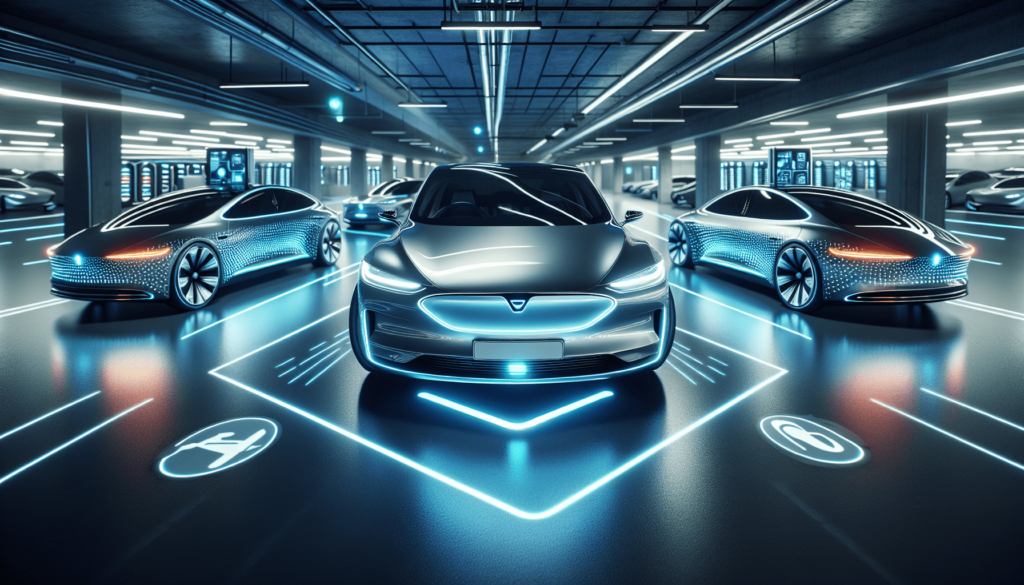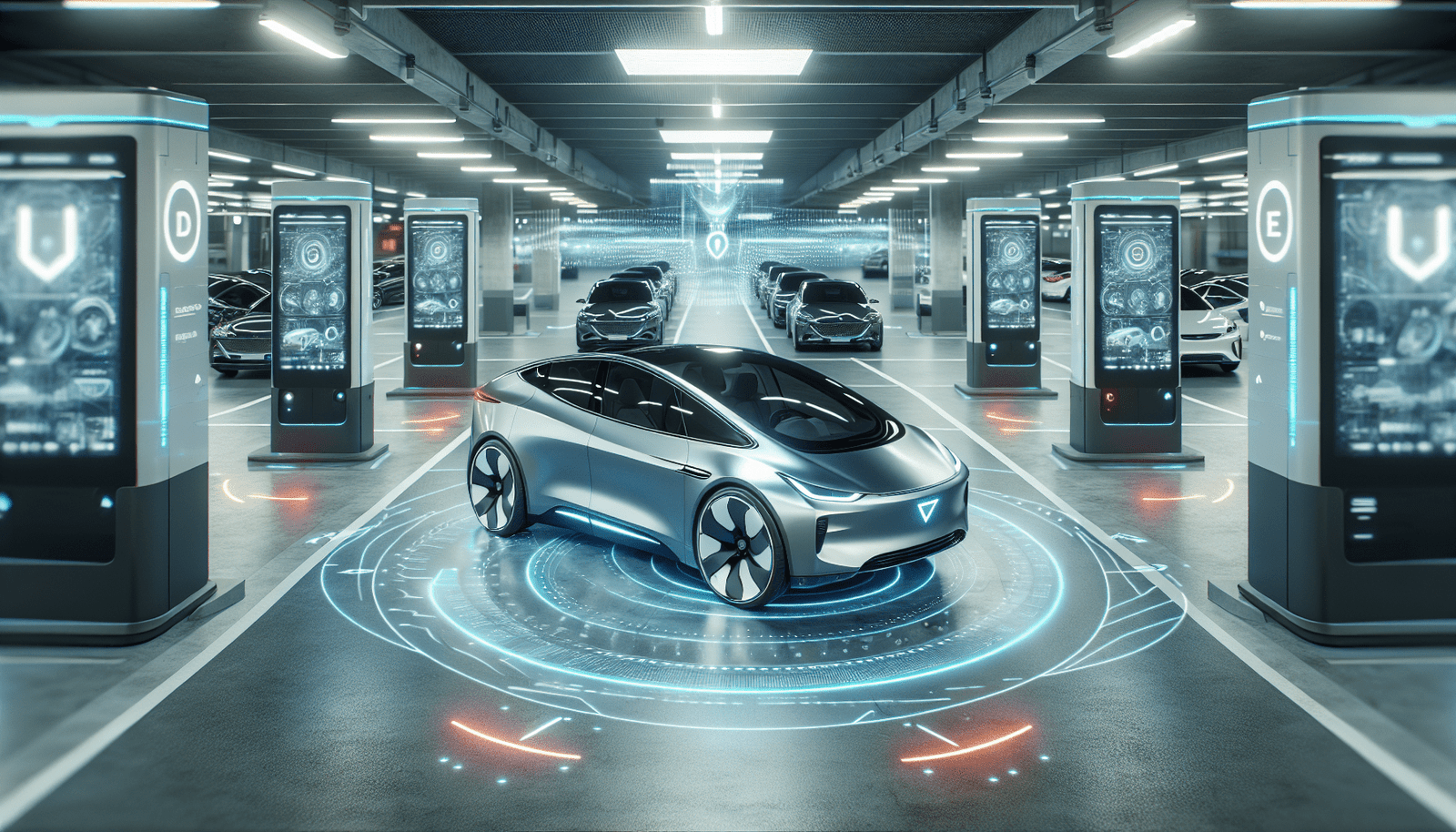Welcome to the exciting world of electric vehicle autonomous parking! As technology continues to advance at a rapid pace, new developments are constantly being made to improve the efficiency and convenience of self-parking systems in electric vehicles. From enhanced sensors and cameras to sophisticated algorithms, these advancements are making it easier than ever for your electric vehicle to find the perfect parking spot on its own. Stay tuned to learn more about the latest innovations in electric vehicle autonomous parking!
What Are The Developments In Electric Vehicle Autonomous Parking?
Have you ever wondered about the latest advancements in electric vehicle autonomous parking technology? Well, you’ve come to the right place! In this article, we’ll explore the recent developments in this exciting field and how they are shaping the future of parking systems for electric vehicles. Let’s dive in!
The Rise of Electric Vehicles
Electric vehicles (EVs) have been gaining popularity in recent years due to their environmentally-friendly nature and cost-efficient operation. With advancements in battery technology and charging infrastructure, more and more people are making the switch to EVs. As the number of EVs on the road increases, the need for efficient and convenient parking solutions becomes crucial.
What Is Autonomous Parking?
Autonomous parking, also known as self-parking or automated valet parking, is a technology that enables vehicles to park themselves without the need for human intervention. Using a combination of sensors, cameras, and algorithms, autonomous parking systems can detect parking spots, navigate the vehicle into the space, and even retrieve the vehicle when needed. This technology not only saves time but also reduces the risk of accidents and scratches when parking in tight spaces.
Benefits of Autonomous Parking for Electric Vehicles
Autonomous parking offers several advantages for electric vehicles, making it an ideal solution for EV owners. Some of the key benefits include:
-
Efficiency: With autonomous parking, EV owners can save time searching for parking spots, especially in crowded areas or busy parking lots.
-
Convenience: Drivers can simply drop off their vehicle at the entrance of a parking facility, and the car will park itself without any manual input required.
-
Safety: Autonomous parking systems help prevent accidents caused by human error, such as bumping into other vehicles or objects while parking.
-
Space Optimization: By utilizing automated parking systems, parking facilities can maximize the number of vehicles parked in a given space, reducing the need for large parking lots.

Recent Developments in Electric Vehicle Autonomous Parking
In recent years, there have been significant advancements in electric vehicle autonomous parking technology. Manufacturers and tech companies are investing heavily in developing innovative solutions to make parking more convenient and efficient for EV owners. Let’s explore some of the latest developments in this field:
1. Enhanced Sensor Technology
One of the key components of autonomous parking systems is sensor technology. Recent developments in sensors, such as lidar, radar, and ultrasonic sensors, have improved the accuracy and reliability of autonomous parking systems. These sensors can detect obstacles, pedestrians, and parking spots with high precision, ensuring smooth and safe parking maneuvers.
2. Advanced AI Algorithms
Artificial intelligence (AI) algorithms play a crucial role in autonomous parking systems by analyzing sensor data, making real-time decisions, and controlling the vehicle’s movements. With advancements in machine learning and deep learning algorithms, autonomous parking systems have become more sophisticated and efficient. These AI algorithms can adapt to different parking scenarios, learn from past experiences, and continuously improve the parking process.
3. Remote Parking Control
Another recent development in electric vehicle autonomous parking is remote parking control. This feature allows EV owners to park their vehicles using a smartphone app or a key fob without having to be inside the car. By simply pressing a button, the vehicle can autonomously park itself in a designated parking spot, making parking even more convenient and effortless for drivers.
4. Multi-Vehicle Coordination
Some autonomous parking systems are now capable of coordinating multiple vehicles to optimize parking space usage. By communicating with other vehicles in the parking facility, EVs can park closer together, allowing more cars to fit in a given space. This multi-vehicle coordination not only maximizes parking efficiency but also reduces the overall footprint of parking facilities, making them more sustainable and eco-friendly.
5. Valet Parking Services
Several companies are developing autonomous valet parking services that enable EV owners to drop off their vehicles at a designated location and have them parked automatically by a robotic valet system. These valet parking services are perfect for busy parking facilities, airports, shopping centers, and other high-traffic areas where parking can be a challenge. By utilizing robotic valets, EV owners can save time and enjoy a seamless parking experience.
Future Trends in Electric Vehicle Autonomous Parking
Looking ahead, the future of electric vehicle autonomous parking holds even more exciting possibilities. Here are some trends that are expected to shape the evolution of autonomous parking systems for EVs:
1. Integration with Smart Cities
As cities become more connected and focused on sustainability, autonomous parking systems will likely be integrated into smart city infrastructure. By leveraging data from traffic sensors, cameras, and parking facilities, autonomous parking systems can optimize parking availability, reduce traffic congestion, and enhance overall urban mobility. This integration will make parking more efficient and convenient for EV owners, leading to a more seamless transportation experience in smart cities.
2. Interoperability Between Vehicles and Parking Facilities
To further streamline the parking experience, future autonomous parking systems may enable interoperability between vehicles and parking facilities. EVs equipped with autonomous parking capabilities can communicate with designated parking spots, garages, and charging stations to reserve parking spaces, access charging infrastructure, and navigate to the nearest available spot. This interoperability will enhance the overall convenience of parking for EV owners and promote the widespread adoption of autonomous parking technology.
3. Collaborations Between Automakers and Tech Companies
Collaborations between automakers, tech companies, and parking operators will play a significant role in accelerating the development and deployment of electric vehicle autonomous parking systems. By combining expertise in vehicle manufacturing, sensor technology, AI algorithms, and infrastructure management, these collaborations can drive innovation, enhance system reliability, and ensure a seamless user experience for EV owners. By working together, companies can bring cutting-edge autonomous parking solutions to market faster and more efficiently.
4. Scalability and Accessibility
Scalability and accessibility will be key factors in the widespread adoption of electric vehicle autonomous parking technology. Future systems must be scalable to accommodate different parking facilities, vehicle types, and urban environments. Additionally, autonomous parking solutions need to be accessible to a wide range of users, including individuals with disabilities, elderly drivers, and first-time EV owners. By designing inclusive and user-friendly systems, autonomous parking technology can benefit a diverse audience and become an integral part of the EV ownership experience.

Conclusion
In conclusion, the developments in electric vehicle autonomous parking are revolutionizing the way we park our vehicles and shaping the future of urban mobility. With enhanced sensor technology, advanced AI algorithms, remote parking control, multi-vehicle coordination, and valet parking services, autonomous parking systems are becoming more efficient, convenient, and safe for EV owners. As we look ahead to future trends such as integration with smart cities, interoperability between vehicles and parking facilities, collaborations between industry players, and scalability and accessibility, the possibilities for electric vehicle autonomous parking are truly limitless. So, the next time you park your electric vehicle, just sit back, relax, and let the technology do the work for you!

